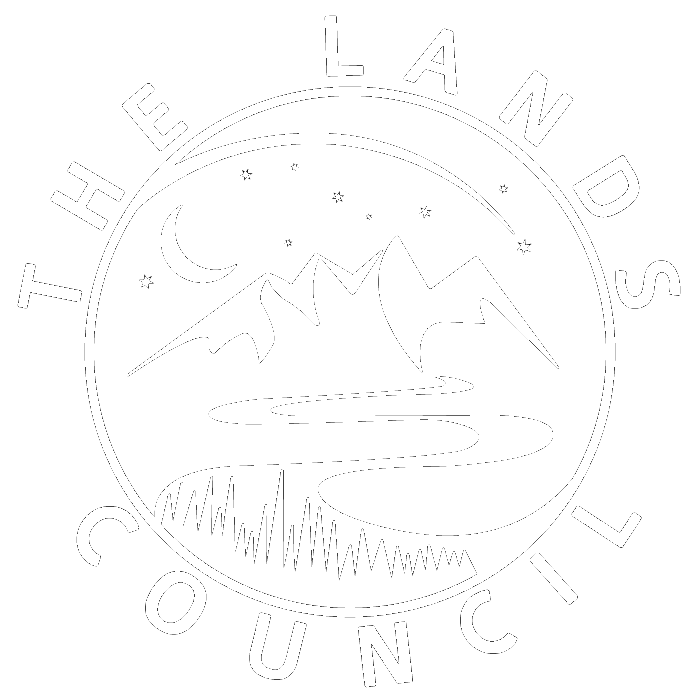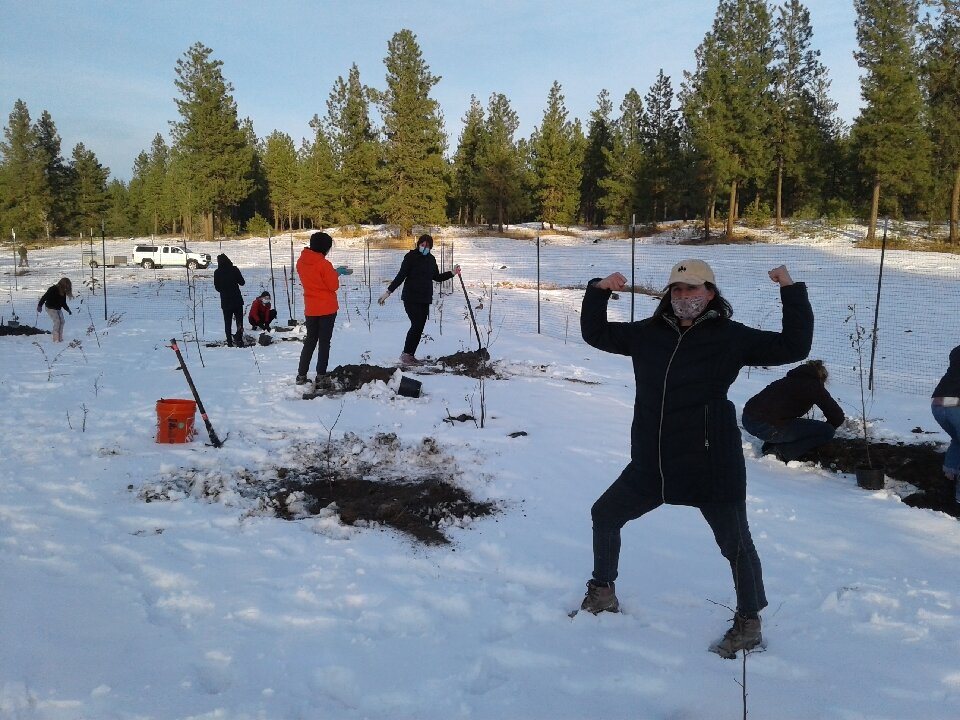Maia and Maggie love Spokane, especially the beautiful, natural environment and the numerous opportunities for outdoor recreation. Because they are both committed to protecting the environment, they love working with The Lands Council. They plant trees, restore riparian habitats, and educate others about the region's ecosystems. As Spokane and the surrounding region’s population grows, Maggie and Maia believe bold action is needed to address environmental injustice, housing, and climate change.
As a recent college graduate and new mom, it is easy to look at the future of Spokane in a different, dim light. The lack of action on climate change has made Maia feel like her son will be missing out on more than just the defined four seasons that we love in the Inland Northwest. Her son is only a few months old and he has so much left to experience. If things don’t start to change soon, he could miss out on white Christmases, air free of wildfire smoke, and floating the Spokane River in the summer. He won’t know the wildlife and native plants like his mom does. If housing does not become more affordable, they may be unable to stay in Spokane long term. As much as Maia loves this region, there is only so much that she can do.
Spokane is facing a housing crisis where many people cannot find safe and affordable homes. According to the Spokane Low Income Housing Consortium, 24% of Spokane County households cannot afford an average two bedroom rental & the Spokane real estate market predicted housing rates would rise 8.9% in 2020. Housing is a basic human right that every person deserves, and Washington needs to take this issue seriously through strategic planning. At the same time, climate change is intensifying. In summer 2020, the compounded impacts of the pandemic and wildfires resulted in negative health impacts for the Spokane community, especially the homeless community.
Climate change exacerbates issues like urban heat island effect, respiratory illnesses, and air pollution. Wildfire smoke-ridden summers will become the new normal, disproportionately impacting outdoor workers, people who are houseless, children, elderly, low-income, and communities of color. In addition to air quality impacts, temperature is projected to increase to dangerously high levels. According to the Spokane Climate Project, the average hottest summer day temperature is projected to rise from 99 degrees (1971-2000 data) to 111 degrees (projected for 2070-2099). Rising temperatures and decreasing snowpack are directly related. Less snowfall, later in the year, impacts Spokane’s aquifer, ecosystems, and recreational winter activities. The aquifer relies on consistent yearly snowmelt, and since we rely on our aquifer for our freshwater needs - from drinking water to fun summer outings - snowfall must be regular and have relatively consistent quantities. If these patterns continue, local flora and fauna will not be able to survive and future generations will miss out on key parts of what makes Spokane so special.
As it stands, Washington’s Growth Management Act (GMA) does not require city/county comprehensive plans to adequately plan for affordable housing needs or address climate change, and it does not address issues of social and racial equality in land-use development. State legislators have the opportunity to improve the GMA this legislative session and prepare Spokane for the issues that come along with a growing city.
Under the GMA, cities across Washington have the ability to plan and be prepared for the impacts of climate change. Adding bold action on housing affordability and access, environmental justice, and climate change to Washington’s GMA would establish a policy and regulatory framework to ensure that Spokane will plan for sustainable growth of our city and resilient communities. We cannot wait any longer in prioritizing the well-being of all people in Spokane and our natural environment.
The GMA will impact the livability of our community, including the water we drink, the air we breathe, and the homes we live in. Taking action on these issues now will create a stronger Spokane in the future. Join us in urging our local representatives to vote yes on the proposed updates to the Growth Management Act. In Legislative District 3, you can contact: Representative Marcus Riccilli, Representative Timm Ormsby, and Senator Andy Billig. You can find your representatives contact information here.
Written By: Maia Inniss & Maggie Gates, who are both recent college graduates & environmental advocates
Maggie is the Community Outreach Coordinator at The Lands Council & Maia works for The Lands Council doing community outreach to increase urban tree cover & serves as co-chair of the Inland Northwest Young Environmental Leaders Board.



